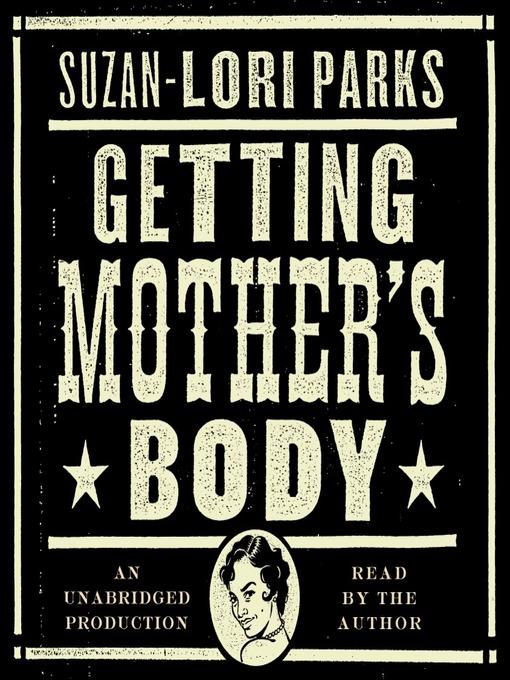
Getting Mother's Body
A Novel
کتاب های مرتبط
- اطلاعات
- نقد و بررسی
- دیدگاه کاربران
نقد و بررسی

Suzan-Lori Parks reads her debut novel with the same spunk and personality possessed by each of her unique characters. Parks provides a distinctive and credible voice for each chapter, which is narrated by a different character, as Billy Beede, her aunt and uncle, close friend, and a cousin race to dig out Billy's mother's body and the supposed treasure buried with her. Parks's vocal acrobatics are amazing as these down-and-out characters travel across the Southwest. Most delightful is her reading as Willa Mae, the dead mother, as she sings each of her chapters. (Parks collaborated on this with her jazz musician husband.) Overall, the package is a compelling performance by a gifted writer. H.L.S. (c) AudioFile 2003, Portland, Maine

Starred review from May 19, 2003
Parks, winner of the 2002 Pulitzer Prize for her play Topdog/Underdog, puts her dramatic skills to good use in this fluid, assured debut novel, the story of a sweaty road trip from Texas to Arizona in July 1963. When stubborn 16-year-old Billy Beede gets knocked up and jilted by her sweet-talking, coffin-salesman lover, she needs money for an abortion. Her wild mother, Willa Mae, died when Billy was 10, and Billy lives with her "childless churchless minister Uncle and one-legged church-hopping Aunt" in a mobile home behind their rural Texas gas station. Billy's only hope for serious cash is to dig up her mother's body from its grave in LaJunta, Ariz., where Willa Mae was buried wearing a diamond ring and a pearl necklace. That, at least, is the story told by Willa Mae's one-time lover, Dill, a six-foot-tall "bulldagger, dyke, lezzy, what-have-you." Billy steals Dill's truck and, together with her aunt and uncle, embarks on a trip to Arizona to find her mother's body, her mother's treasure and her mother's memory. With disgruntled Dill in hot pursuit (chauffeured by Billy's dogged suitor, Laz, misfit son of the local funeral parlor owner), the three travel through the racist Southwest, meeting up with relatives, friends and foes. Parks narrates her brief chapters from the point of view of different characters, giving each a distinctive voice; blues songs are interwoven with the text. Parks's influences are evident—among them Zora Neale Hurston and Faulkner's As I Lay Dying—but the novel's easy grace and infectious rhythms are all her own. Fueled by irresistible, infectious talk and prose that swings like speech, this novel begs (no surprise) to be read aloud. (May)Forecast:Few playwrights enjoy the kind of success Parks has at such a young age (she was born in 1964), and few make such a seamless transition to fiction. Her reputation and the quality of this novel should fuel impressive sales. 8-city author tour.

November 15, 2003
Pulitzer Prize-winning playwright Parks (Topdog/Underdog) narrates her own fiction debut. Writing in short sections, with shifting points of view, she presents a portrait of black life in the South in 1963: Billy is 16 and pregnant, her mother is dead, her mother's lover was a woman whom she assumed for the first three months was a man, her preacher uncle has lost not only his church but his faith, her aunt has lost her leg, her mother's gravesite is about to be buried under a concrete shopping center, and the story is going around that her mother was buried with all her jewels. This has all the potential for a wonderful tour de force, but midway through the performance the writing becomes predictable and the fascinating premise is never fully developed. Still, Parks's fame as a playwright will probably mean a lot of interest in her presentation here-and it is excellent. For larger collections.-Rochelle Ratner, formerly with "Soho Weekly News," New York
Copyright 2003 Library Journal, LLC Used with permission.

























دیدگاه کاربران